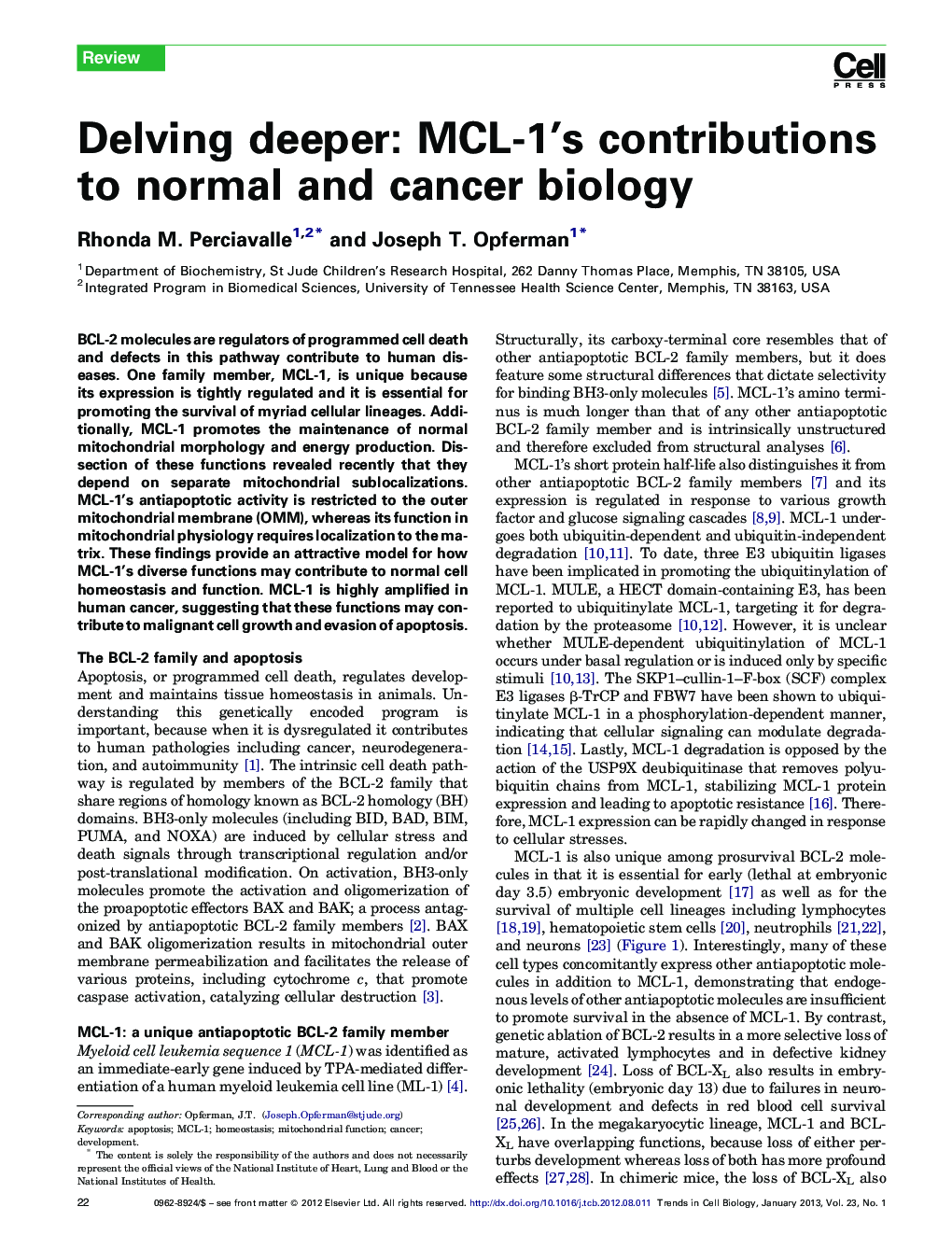| Article ID | Journal | Published Year | Pages | File Type |
|---|---|---|---|---|
| 2204496 | Trends in Cell Biology | 2013 | 8 Pages |
BCL-2 molecules are regulators of programmed cell death and defects in this pathway contribute to human diseases. One family member, MCL-1, is unique because its expression is tightly regulated and it is essential for promoting the survival of myriad cellular lineages. Additionally, MCL-1 promotes the maintenance of normal mitochondrial morphology and energy production. Dissection of these functions revealed recently that they depend on separate mitochondrial sublocalizations. MCL-1's antiapoptotic activity is restricted to the outer mitochondrial membrane (OMM), whereas its function in mitochondrial physiology requires localization to the matrix. These findings provide an attractive model for how MCL-1's diverse functions may contribute to normal cell homeostasis and function. MCL-1 is highly amplified in human cancer, suggesting that these functions may contribute to malignant cell growth and evasion of apoptosis.
